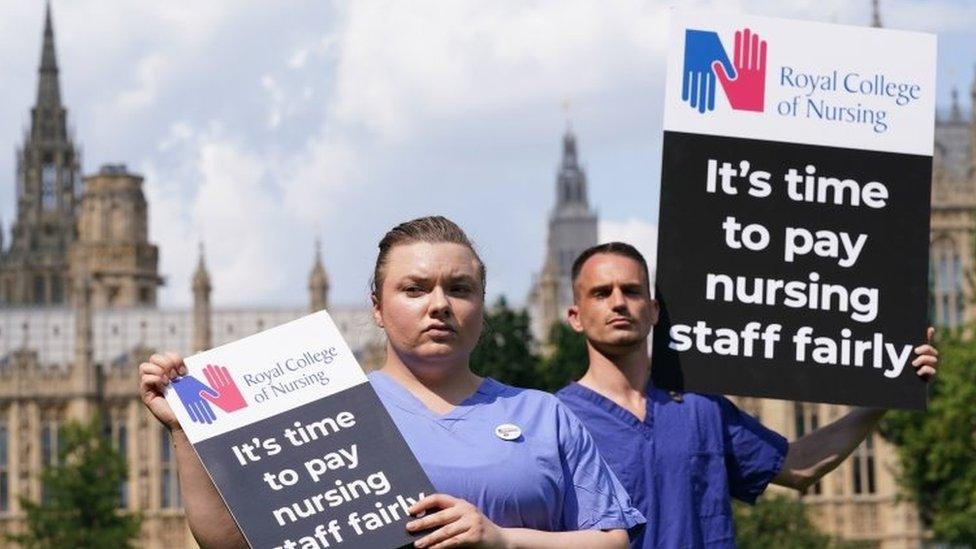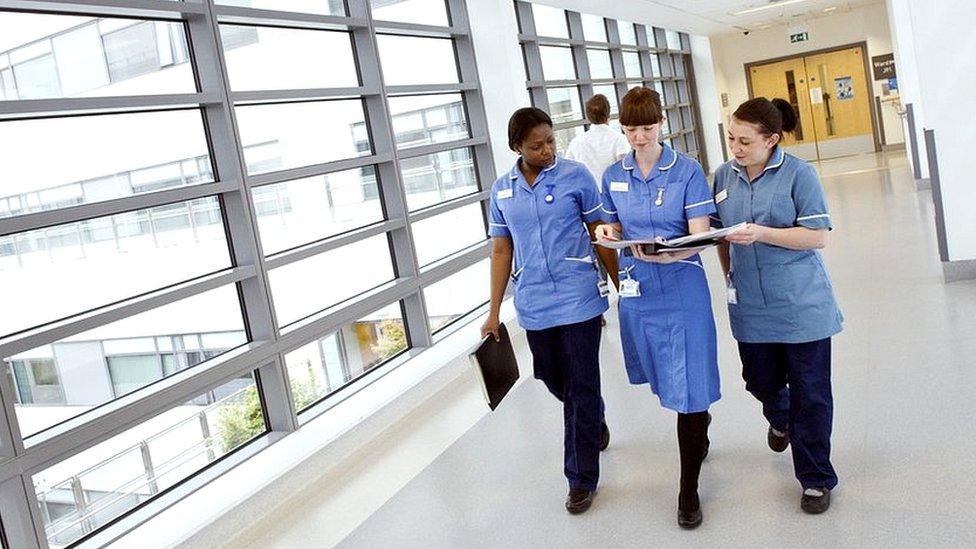How NHS strikes on Monday 6 February will affect you
- Published

The NHS is bracing for its biggest strike yet. For the first time in this dispute, ambulance workers and nurses will walk out together in England on Monday.
The impact will also be bigger than on previous strike days because more hospital trusts are involved.
It won't just affect emergency care - many non-urgent appointments and operations will be cancelled.
In Wales, the strike has been called off by the main ambulance union, the GMB, and the Royal College of Nursing (RCN) union while they consider a new pay offer from the Welsh government.
But the Unite union, which also represents ambulance workers in Wales, says its strike will go ahead.

Nurses strikes
Members of the RCN are walking out over pay on Monday 6 February and Tuesday 7 February.
The RCN has said this is the biggest action so far, with more than a third of hospital trusts in England affected.
The union has about 300,000 members - roughly two-thirds of NHS nurses.
Welsh NHS staff have suspended strike action following an improved offer from ministers.
The RCN and GMB unions in Scotland have put strike action on hold to allow talks on a 2023 pay offer.
People with a hospital appointment in England should still go, unless they have been told otherwise, according to NHS advice, external.
Patients in hospital will be informed how their care will be affected on a ward-by-ward basis.
Intensive and emergency care will still be provided, but routine check-ups and other operations may be affected.
Services such as chemotherapy, kidney dialysis and intensive care will be staffed, but other care such as knee and hip replacements and hernia repair are likely to be affected.
GP practices will run as normal, and people should go to scheduled appointments.
Anyone who is seriously ill or injured should still call 999, or 111 for non-urgent care.
The nurses strikes on each day will last for 12 hours.
Ambulance workers
Ambulance staff in England are striking over pay on Monday, with further strike dates announced.
People should only call an ambulance if they are seriously ill or injured, and there is a risk to life.
The most life-threatening situations - such as cardiac arrest - will be sent an ambulance.
Conditions which are serious but not immediately life-threatening might not be immediately attended.
Calls - such as a woman in late-stage labour - will not be prioritised.
For other healthcare needs, the NHS advises calling 111, or using 111 online, external.
Ambulance strikes on 6, 17, 20, and 22 February, and 6 and 20 March will last for up to 26 hours.
The NHS said it was working with the armed forces "to ensure ambulance services are supported".
Additional reporting by Tom Espiner


How are you affected by the strikes? Are you taking part in strike action? You can email: haveyoursay@bbc.co.uk, external.
Please include a contact number if you are willing to speak to a BBC journalist. You can also get in touch in the following ways:
WhatsApp: +44 7756 165803, external
Tweet: @BBC_HaveYourSay, external
Or fill out the form below
Please read our terms & conditions and privacy policy
If you are reading this page and can't see the form you will need to visit the mobile version of the BBC website to submit your question or comment or you can email us at HaveYourSay@bbc.co.uk, external. Please include your name, age and location with any submission.
Related topics
- Published2 May 2023

- Published1 August 2023

- Published16 January 2023
